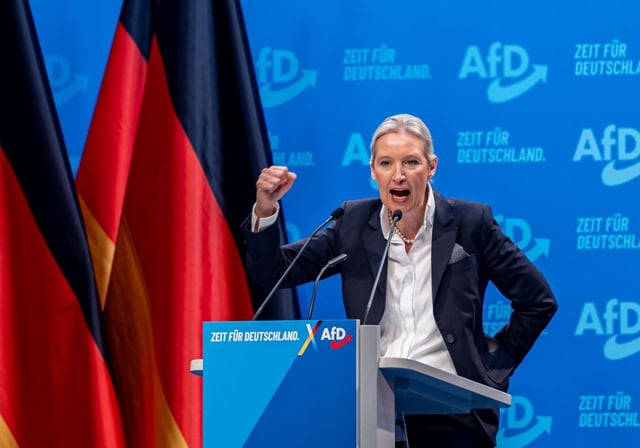Overview
- Germany's domestic intelligence agency has classified the far-right Alternative für Deutschland (AfD) party as an extremist group, allowing expanded surveillance measures.
- The agency justified the designation by citing the AfD's ethnic-based populism, disregard for human dignity, and incompatibility with democratic principles.
- This decision follows years of scrutiny and comes after the AfD's second-place finish in February's federal elections, raising concerns about its political influence.
- New surveillance powers include the use of informants and communication interception to monitor the party's activities more closely.
- AfD leaders have condemned the move as politically motivated, while Chancellor Olaf Scholz acknowledged the detailed justification but urged restraint in pursuing outright prohibition of the party.

